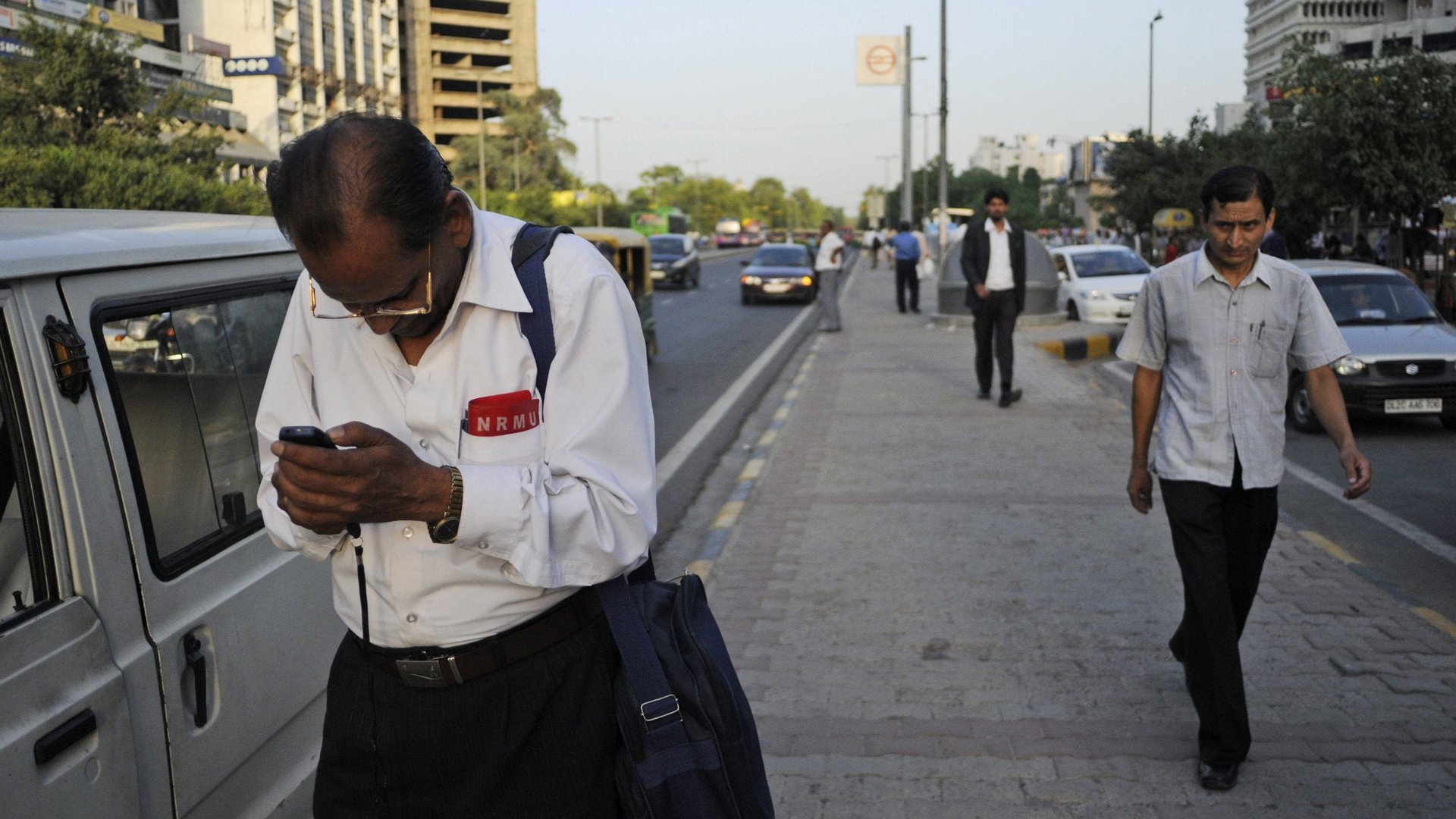Finally, Indian politicians are fighting on Twitter
Indian politicians’ latest weapon against each other: The hashtag.


Indian politicians’ latest weapon against each other: The hashtag.
That’s ironic since internet penetration in India is barely 10%, and nobody knows when upcoming elections will actually be.
Still, earlier this month, as Nehru-Gandhi dynasty scion Rahul Gandhi made his first speech to the Confederation of Indian Industry (CII) summit, the trending topic on Twitter was #PappuCII. Pappu is a derogatory colloquial term meaning naïve child.
That appellation intensified the hashtag battles.
Four days later, the BJP’s leading contender for prime minister–Narendra Modi–spoke at an industry event. And the Twitter handle #feku– Hindi slang for bluffer—was born.
Neither political party has claimed credit for masterminding the social-media assaults, but nobody buys that. Vir Sanghvi, a veteran journalist writes:
…If you believe that the Twitter effort that led Feku to trend worldwide when Modi was speaking was spontaneous then you probably believe anything: that the moon is made of blue cheese…
The online battle comes just as the Internet and Mobile Association of India’s latest report predicts social media users will influence the elections in 160 “high impact” constituencies out of the total of 543 constituencies in the next general election. High-impact constituencies are those where the number of Facebook users is more than the margin of victory of the winner in the last election, or where Facebook users account for over 10% of total voters in a constituency.
This is significant because campaigns have largely focused their efforts on wooing the rural poor, with the promise of jobs, rations like rice and sugar, even laptops and televisions.
The right-wing BJP, which stands for Bharatiya Janata Party, has traditionally had the stronger online presence. The party has outsourced its online campaign to professional agencies, who recruit volunteers to ensure that the party’s views are reflected in cohesion. Modi himself is an avid tweeter and has more than 1,475,750 followers.
Rahul Gandhi, who has positioned himself, as the voice of youth has been criticized for not engaging with the public online. Now, his Congress Party is trying to catch up. The committee formed to design the party’s campaign for the next general elections has asked senior members to submit their Facebook, Twitter and YouTube identities to build a database. Suddenly, the party’s Facebook account is buzzing with activity. Recently, finance minister P. Chidambaram explained the finer points of the government’s budget for 2013-14 via Google Hangout.
However, this newfound love for social media is ironic considering India’s shaky track record of protecting freedom of expression on the internet. In November last year, Ravi Srinivasan, a businessman was arrested for a tweet about the son of finance minister P Chidambaram. In the same month, two young women in Mumbai were arrested for questioning the total shutdown in the city for political leader Bal Thackeray’s funeral.
The government meanwhile has tried to restrict access to more than 100 websites with little justification. However, the minister for communications and information technology, Kapil Sibal, says the government is “wedded to freedom of expression”. He however feels internet businesses must be responsible for controlling content on the web. In his words, “Internet governance is an oxymoron.”
The next hashtag to trend out of India might as well be #mixedmessages.